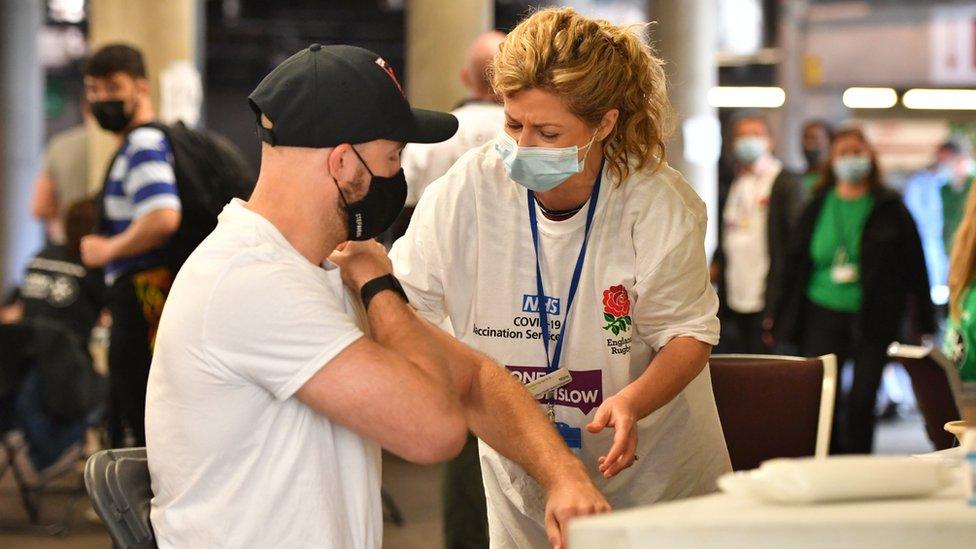Covid: Scotland 'at the start' of a third wave
- Published
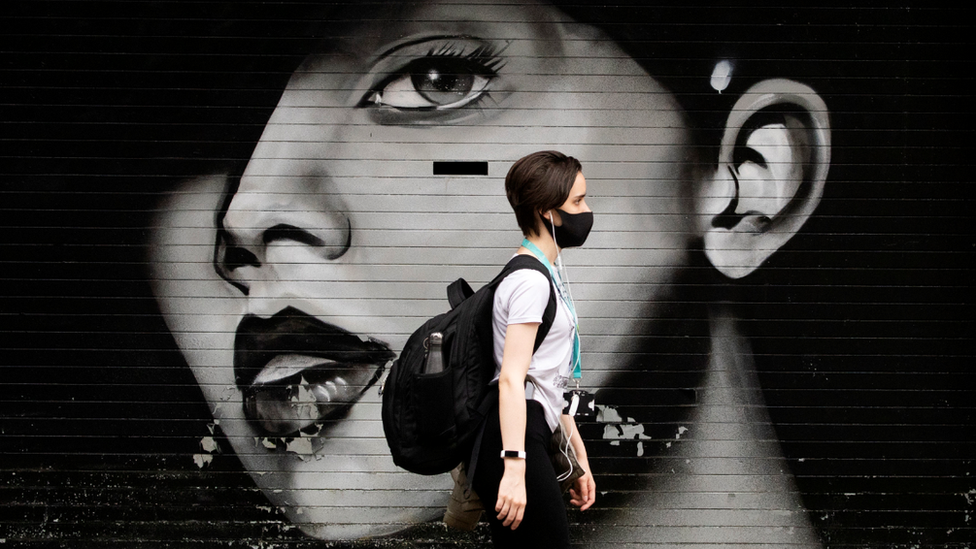
Scotland is at the beginning of a third wave of Covid, according to the country's national clinical director.
Prof Jason Leitch said more cases were inevitable as society gradually opens up after lockdown.
On Monday a scientific adviser to the UK government warned there were signs the UK was in the early stages of a third wave of infections.
Earlier Nicola Sturgeon, Scotland's first minister, paused lockdown easing in some areas of the country.
Most of the country had been due to drop to level one of the five-tier system next week but Ms Sturgeon said 13 council areas would stay in level two due to rising case rates.
Glasgow, which had been the only local authority still in level three, will also move to level two.
As national clinical director, Prof Leitch regularly appears alongside Ms Sturgeon at Covid briefings to help communicate public health messages.
He was asked on BBC Radio Scotland's Drivetime if he thought Scotland was at the start of a third wave.
He replied: "Yes. I think we are. The question is how big that third wave is."
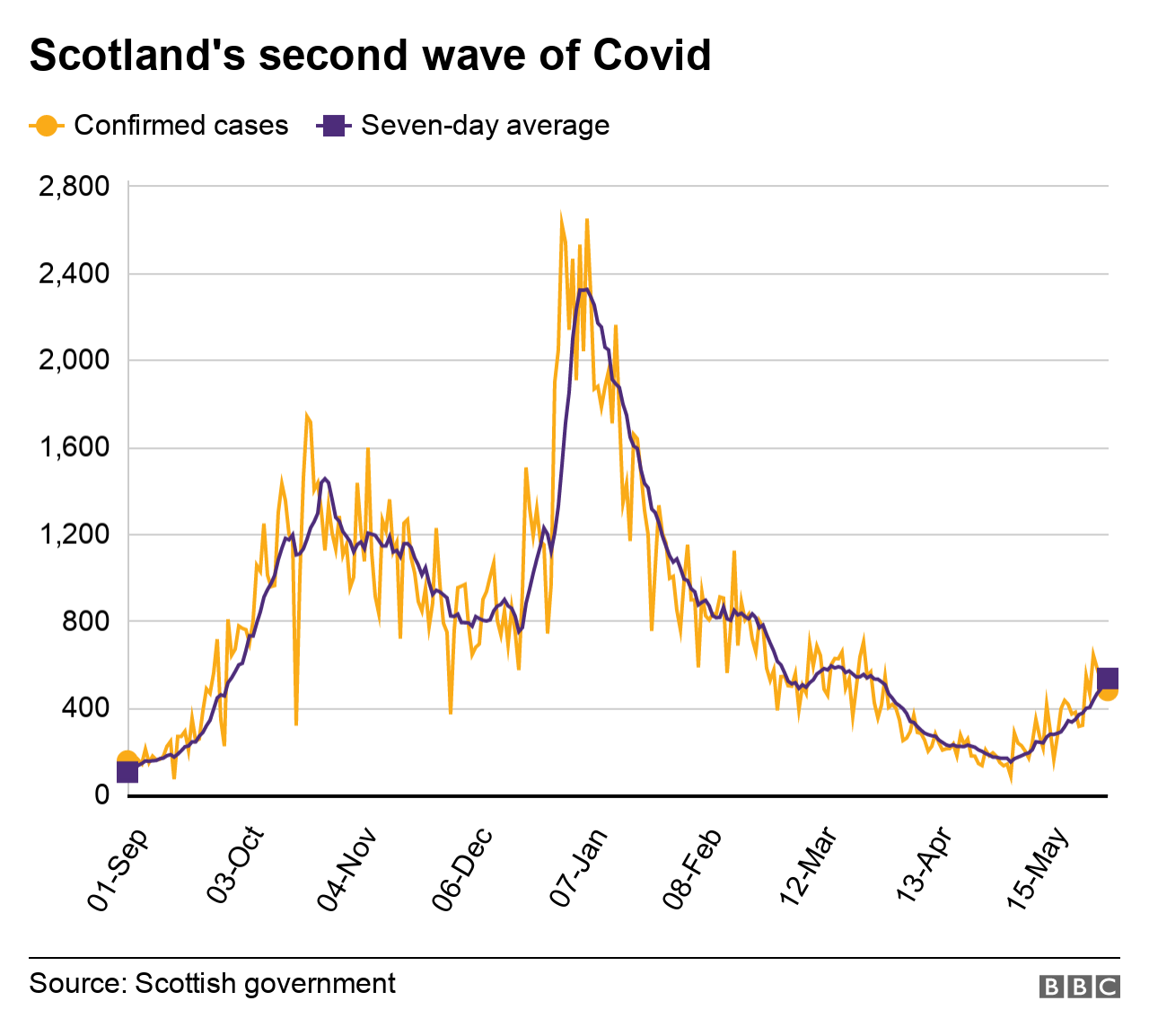
Covid cases hit a low on 5 May, when 85 cases were recorded across Scotland.
But since then numbers have been rising, with 641 recorded on Friday - the highest daily number since 25 March.
The variant first identified in India is believed to be responsible for about half of Scotland's daily cases.
Prof Leitch said that as restrictions ease then it followed that there would be more cases.
He added: "The question is whether you control that to a level that doesn't cause enough severe disease to fill hospitals and enough severe disease to cause misery and death to families.
"And that's the balance we are now trying to strike in the advice we are giving and the decisions the first minister and the cabinet have made."
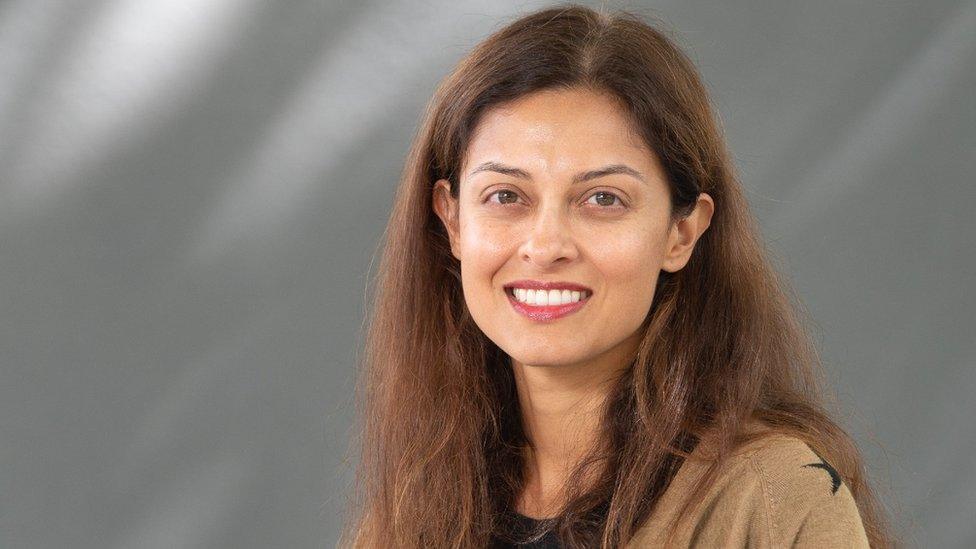
Prof Devi Sridhar said the slowdown in the route out of lockdown would "buy time to get those vaccines out"
Prof Devi Sridhar, of Edinburgh University, told BBC Good Morning Scotland she was encouraged that the UK reported zero Covid deaths on Tuesday, the first single day when this has happened since the pandemic began.
She said: "It's incredibly good news and it shows the progress we have made in the past year. Vaccines are stopping severe disease, they are stopping hospitalisations and deaths.
"We want to buy a few more weeks to get more of these vaccines in people's arms, this is not going backwards - the end is still in sight."
Prof Sridhar added that the relaxing of overseas travel restrictions was "creating uncertainty" for how quickly the pandemic will be defeated.
Health Secretary Humza Yousaf told Good Morning Scotland that slowing down the relaxation of lockdown was a "bump in the road" and that the situation would be reviewed on a weekly basis.
He said: "Crucially what we are looking at, in what is likely to be the third wave, is the effect the vaccine has had, how many people are going into hospital, how long they are staying there.
"Please bear in mind if it is the start of the third wave then we are not at the peak."
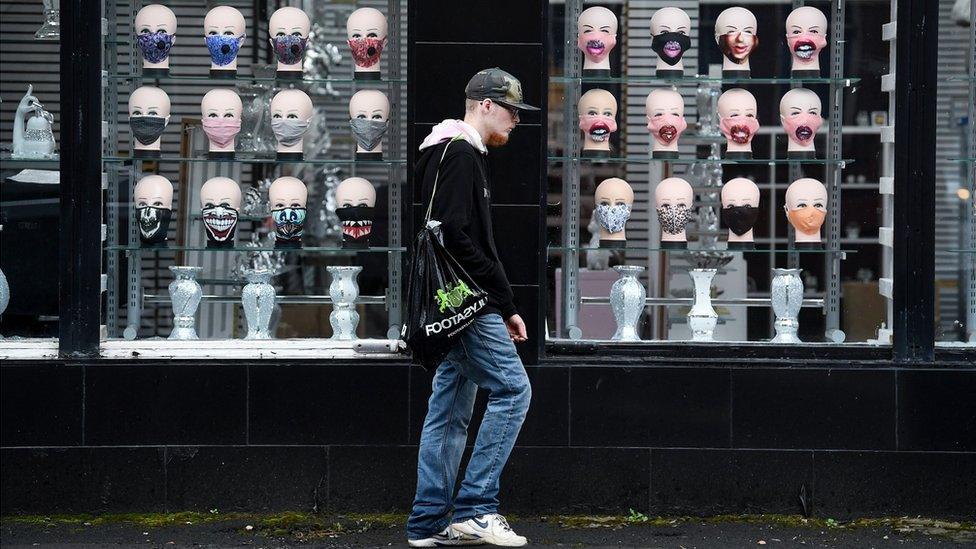
However, Mr Yousaf said there were encouraging signs that the link between positive cases and hospitalisations is weakening.
Prof Leitch was also asked if Glasgow's role as a host city of Euro 2020 had any bearing on the decision to ease restrictions before the tournament starts on 11 June.
The Scottish government has given approval for 12,000 supporters - 25% of the stadium's capacity - to attend tournament matches at Hampden in June.
He said: "Absolutely not. There is no single sector, despite what you might believe, there is no single sector that gets to control the Covid response.
"I absolutely promise you. Not in the advice and not in the decision-making."
Treatments progress
Meanwhile, Dr Christine Tait-Burkard, a virologist at the University of Edinburgh, later told BBC Scotland's The Nine there has been a "bump" in hospitalisation numbers.
But she added 5% of people who test positive now require hospital treatment - compared to 10% earlier in the pandemic - and patients are spending less time in hospital.
"It tells us that not only is the vaccination working but also treatments have made progress significantly since even the beginning of the year,"Dr Tait-Burkard said.
Scotland's Deputy First Minister John Swinney said the vaccine gave "a huge amount of security".
But he added: "We are not certain yet that the vaccination protects us from the significant upsurge in hospitalisation, which would obviously be a real worry as part of the development of the pandemic."
Mr Swinney, who is also the Covid recovery secretary, added: "The vaccination is a real strength but there are still dangers and we have to make sure that we take a measured approach to tackle all of those issue as we address the pace of the virus within our society."


- Published1 June 2021
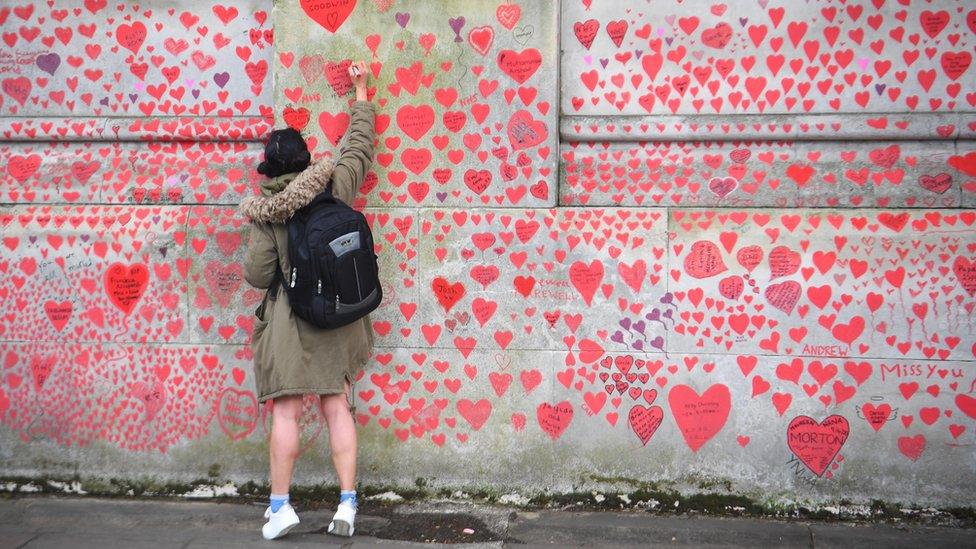
- Published31 May 2021
